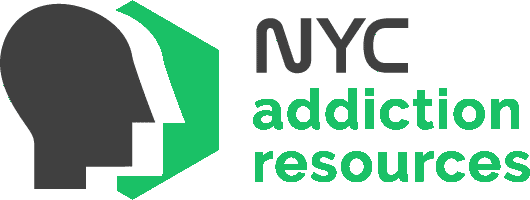
If you or someone you know has struggled with substance abuse, alcohol addiction, or drug addiction, it’s important to be aware of the types of detox available. Long Island outpatient detox is a leading option that is less of an interruption to people’s daily lives.
Typically a detox treatment plan is recommended for those who are at high risk for acute withdrawal symptoms. However, outpatient detox is helpful for anyone who needs to stop taking a substance they have become dependent on.
What is Acute Withdrawal?
Acute withdrawal is the body’s reaction to stopping the use of addictive drugs. While using, your body adjusts to having the drugs in your system. Addictive drugs change how your body works to make it require those drugs to work properly. When you stop using, your body struggles to keep working until it can undo the changes and work normally again. Acute withdrawal occurs in the first hours, days, and weeks after stopping drug use.
Signs of Acute Withdrawal
When someone is in withdrawal, it is relatively easy to know since the symptoms can be seen. Some of the symptoms of acute withdrawal can include:
- Nausea
- Vomiting
- Diarrhea
- Abdominal cramping
- Cold flashes with goosebumps
- Seizures
- Incoordination and tremors
- Anxiety and panic attacks
It is important that you understand the severity of acute withdrawal from the substance you are using. The symptoms vary based on the substance.
What is Post-Acute Withdrawal?
Post-acute withdrawal is a condition where withdrawal symptoms last longer than they should. In many cases, withdrawal is usually a short-term issue. It is possible to experience withdrawal for a much longer time depending on the impact of the drugs that were taken. For example, opioid withdrawal has a higher chance of lasting longer than expected.
Signs of Post-Acute Withdrawal
Post-acute withdrawal syndrome (PAWS) occurs after the first few weeks of withdrawal when symptoms should begin to subside. Some of the symptoms of PAWS can include:
- Muscle aches
- Nausea
- Headache
- Increased heart rate
Benefits of Outpatient Detox
There are many benefits of participating in outpatient detox.
Some of them include:
Ability to Live at Home
Most outpatient detox facilities will allow you to stay at home during your detox treatment. As opposed to being in a hospital, or recovery center, where you are forced to live away from your home environment and support system, outpatient detox allows you the freedom to be in an environment where you are surrounded by those who love and care about you. This is beneficial for the client because they can do other activities while in treatment as opposed to being confined in a hospital or facility where they may not be able to leave while receiving treatment.
Family Counseling Helps the Whole Family
While in outpatient detox, it is likely that the professionals working with you will provide family counseling and help with other areas of your life that may have been affected by substance abuse. This may include relationship issues, emotional problems, and even parenting issues.
Program Support
Outpatient detox also provides you with a structured program that can help you with your recovery. There are many support programs that specialize in different types of detox and recovery. If possible, find a detox program that supports the type of recovery that you need. Program support may include:
- Individualized care plans
- Group meetings with other clients
- Alcohol or drug education classes such as Narcotics Anonymous
Therapies Used in Outpatient Detox
Outpatient detox usually consists of several therapy types. That way, patients get a more well-rounded treatment plan that fits their needs.
Cognitive-Behavioral Therapy
Cognitive-behavioral therapy (CBT) treats the feelings and influences connected to addiction. It is administered by a certified counselor and can be used in the short term and the long term. It is one of the most common therapy methods.
Individual Counseling
Counseling is an important part of the recovery process. Patients can meet with counselors for one-on-one sessions, which gives them the focused care they may need. Individual counseling is often used as a short-term, long-term, and emergency treatment option.
Group Counseling
Patients may work with counselors in groups, which helps develop support networks. Some patients find it easier to make progress in a group setting rather than by themselves. Group counseling is often used as a long-term strategy once a patient is stable enough to participate.
Medication-Assisted Treatment
Medication-Assisted Treatment (MAT) is effective when a patient needs medication to manage withdrawal symptoms. It is used in cases where withdrawal symptoms are severe. Highly addictive substances, such as narcotics and opioids, may require MAT to overcome.
Long Island outpatient detox can help someone trying to overcome addiction find the resources that they need. The right outpatient program can make a big difference in how your recovery goes. If you need help finding an outpatient program, contact NYC Addiction Resources for assistance.
Meta Description – Outpatient detox lets you continue your life stopping substance abuse. Learn more about Long Island outpatient detox from NYC Addiction Resources.


